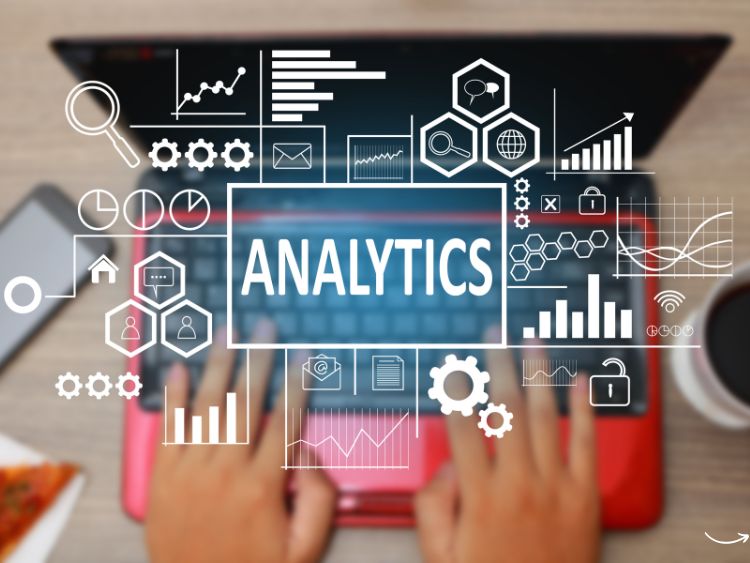Ever wondered how some businesses seem to make all the right decisions while others struggle to keep up? The secret often lies in applied business analytics. In today’s data-driven world, the ability to harness and interpret data effectively can be the difference between success and failure. Business analytics is not just a buzzword; it’s a game-changer that transforms raw data into actionable insights, driving smarter decisions and better outcomes. So, let’s dive into this fascinating topic and uncover how business analytics can revolutionize your business!
What is Applied Business Analytics?
Applied business analytics is the practice of using data, statistical analysis, and predictive modeling to make informed business decisions. This approach goes beyond traditional data analysis by applying advanced techniques and tools to interpret complex data sets, uncover patterns, and predict future trends.
Key Components of Applied Business Analytics
- Data Collection: Gathering relevant data from various sources, including internal systems, external databases, and social media.
- Data Processing: Cleaning and organizing data to ensure accuracy and consistency.
- Data Analysis: Using statistical methods and tools to explore data and identify trends.
- Predictive Modeling: Building models to forecast future outcomes based on historical data.
- Decision Making: Applying insights gained from analysis to make strategic business decisions.
Why is Applied Business Analytics Important?
In a world where data is constantly being generated, applied business analytics helps businesses stay ahead of the curve. Here’s why it’s crucial:
- Improved Decision Making: Data-driven insights lead to more informed and effective decisions.
- Enhanced Efficiency: Identifying inefficiencies and optimizing processes saves time and resources.
- Competitive Advantage: Businesses that leverage analytics are better positioned to outperform their competitors.
- Customer Insights: Understanding customer behavior and preferences allows for personalized experiences and improved satisfaction.
Applications of Applied Business Analytics
Marketing
Applied business analytics can revolutionize marketing strategies. By analyzing customer data, businesses can segment their audience, tailor their messages, and predict which marketing campaigns will yield the best results.
- Customer Segmentation: Grouping customers based on demographics, behavior, and preferences.
- Campaign Optimization: Testing and refining marketing campaigns for maximum impact.
- Predictive Analytics: Forecasting customer behavior and trends to stay ahead of the market.
Operations
Operations can be streamlined through business analytics, leading to improved efficiency and reduced costs.
- Supply Chain Optimization: Analyzing supply chain data to identify bottlenecks and improve logistics.
- Inventory Management: Predicting demand to maintain optimal inventory levels.
- Process Improvement: Identifying inefficiencies and implementing solutions to enhance productivity.
Finance
In finance, applied business analytics provides valuable insights for managing risk, optimizing investments, and improving financial performance.
- Risk Management: Assessing and mitigating financial risks through predictive modeling.
- Investment Analysis: Evaluating investment opportunities based on historical data and market trends.
- Financial Forecasting: Predicting financial outcomes to inform budgeting and planning.
Tools and Techniques in Applied Business Analytics
Several tools and techniques are essential for effective applied business analytics:
- Data Visualization Tools: Tools like Tableau and Power BI help visualize data and make insights more accessible.
- Statistical Software: Software like R and SAS are used for advanced statistical analysis.
- Machine Learning Algorithms: Algorithms such as regression, classification, and clustering are used to build predictive models.
- Big Data Technologies: Technologies like Hadoop and Spark handle large data sets and perform real-time analysis.
The Future of Applied Business Analytics
The future of applied business analytics is bright, with advancements in technology and increased data availability driving innovation. Key trends to watch include:
- Artificial Intelligence (AI): AI-powered analytics will enable even more accurate predictions and automation of decision-making processes.
- IoT Integration: The Internet of Things (IoT) will generate vast amounts of data, providing new opportunities for analytics.
- Data Privacy and Ethics: As data usage grows, so does the importance of ethical considerations and data privacy regulations.
FAQs
What is the difference between business analytics and applied business analytics?
Business analytics is a broad field that involves analyzing data to make business decisions. Applied business analytics specifically focuses on using advanced techniques and tools to interpret data and predict future trends.
How can small businesses benefit from applied business analytics?
Small businesses can use business analytics to improve decision-making, optimize operations, and gain a competitive edge. By leveraging data, they can better understand their customers, streamline processes, and identify growth opportunities.
What skills are needed for a career in applied business analytics?
Key skills include statistical analysis, data visualization, programming (e.g., Python, R), machine learning, and domain knowledge in business. Strong communication and problem-solving skills are also essential.
Are there any challenges in implementing applied business analytics?
Challenges include data quality issues, integration of disparate data sources, and the need for skilled professionals. Ensuring data privacy and security is also a significant concern.
Summary
Applied business analytics is a powerful tool that transforms data into actionable insights, driving better business decisions and outcomes. By leveraging advanced techniques and tools, businesses can improve efficiency, gain a competitive advantage, and enhance customer satisfaction. As technology continues to evolve, the potential of business analytics will only grow, offering new opportunities for innovation and success.

